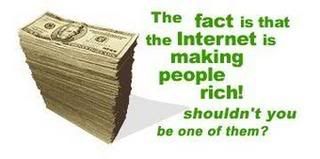Great philanthropists often follow a simple formula: 1) make billions of dollars in ways that stir controversy and occasional outpourings of ire; 2) give much of it away to marble-plaqued institutions like colleges and libraries so that public revulsion gradually melts into reverence.
George Soros got the first part right. As a detached and mysterious currency speculator, he made billions by moving markets in a manner that made him a whipping boy for besieged bankers and ministers. In one famous week in 1992, he made $1 billion betting against the British pound, earning him the grudging title of the Man Who Broke the Bank of England. This summer Malaysian Prime Minister Mahathir Mohamad accused him of being a criminal. He said Soros the speculator had attacked Southeast Asian currencies to punish their governments for admitting the Burmese military regime - which Soros the humanitarian opposes--to asean, a regional political and trade organization.
Now Soros is gleefully flouting the script for Act II. With a unique and astonishing passion for challenging conventional wisdom, he is leveraging his billions to move controversial ideas and speculate in policy. In the process, he has made himself the most influential, intriguing and to some the most infuriating philanthropist of our era. Says he: "When I was offered an honorary degree at Oxford, they asked me how I wanted to be described, and I said I would like to be called a financial, philanthropic and philosophical speculator."
Initially, he focused his philanthropic speculation on Central and Eastern Europe. A survivor of the Holocaust and communism, he spread hundreds of millions of dollars to support democracy in countries struggling to break from the old Soviet orbit. In the waning years of the cold war, he bought photocopiers for his native Hungary so the communists couldn't monopolize information. Later, with Russia adrift, he spent $100 million to help Soviet science, and scientists, survive the transition. In Yugoslavia he was outraged by what he perceived to be the pusillanimity of the West, so he doled out $50 million to try to save Sarajevo from Serb depredations. He has spent millions more funding Open Society foundations around the world, which finance education, freedom of speech and human-rights projects.
He is now turning his attention to the U.S., his adopted country. The reason? The good guys won abroad; there's work to do at home. The collapse of the Soviet Empire, he says with typical forthrightness, "was a historical opportunity, and I rose to the occasion, so there was no time for any other activity. When things calmed down, I had the opportunity to start thinking about what could be done here."
So what kind of reception can this champion of human rights and open debate expect for the hundreds of millions he is giving away each year? "He's the Daddy Warbucks of drug legalization," who seeks to bamboozle American voters, fumes Joseph Califano, former U.S. Secretary of Health, Education and Welfare and currently president of the National Center on Addiction and Substance Abuse at Columbia University. New York Times columnist A.M. Rosenthal denounced him as giving new meaning to the term drug money. To Deputy Secretary of State Strobe Talbott, on the other hand, his international work makes him a "national treasure." To Richard Holbrooke, the former Assistant Secretary of State who negotiated the Dayton peace agreement for Bosnia, "he is the most interesting and important philanthropist since Andrew Carnegie. He really tries to have his money make a difference."
Soros deliberately courts controversy and publicity, trying to build a platform from which to propagate his views, a strategy that has earned the enmity of governments from Malaysia to Croatia to Belarus. And he's feeling the pressure. "I'm a little bit beleaguered, not too badly but a little bit. I'm overexposed, fighting on too many fronts, and that's a mistake." But that doesn't seem to stop him from engaging on even more fronts as he brings his personal philosophy of "reflexivity" and his megabucks - estimated at up to $5 billion - to bear on the attitudes he believes are damaging the U.S.
Here he is concerned with the antithesis of state control: the abandonment of state responsibility. He thinks our drug laws are ludicrous, filling up prisons with people who really have a medical problem. He calls welfare reform a "clear-cut case of injustice contrary to this country's proud tradition of welcoming immigrants." He also thinks we die wrong.
And he is doing something about all of it.
Soros is giving $15 million over five years to groups that oppose America's "war on drugs" or want to open the debate about drug policy. He says the "unintended consequences" of the war, including the criminalization of a vast class of drug users, far outweigh the limited and costly success of interdiction. Last year he gave an extra $1 million to persuade voters in California and Arizona to allow doctors to prescribe hitherto illegal drugs, including marijuana, to ease suffering.
"Our drug policy is insane," he says. "And no politician can stand up and say what I'm saying, because it's the third rail - instant electrocution." Soros can get an audience and feels obligated to speak out. "I'm in a unique position. The same applies with Eastern Europe. Therefore I have to do these things."
All (Archieves) Articles About George Soros

Labels: Dollar |